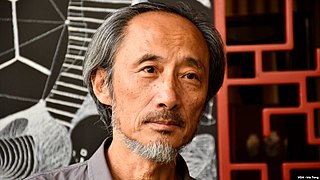A Quote by Dalai Lama
Self-rule means that China must stop its intensive effort to colonize Tibet with Chinese settlers and must allow Tibetans to hold responsible positions in the government of Tibet.
Related Quotes
The Tibetan religion has a past. And furthermore it has such an appeal. There again young people today are drawn to Buddhism and to Tibet. It's not only because of the Dalai Lama. It's because of what Tibet represents. There is a vast reservoir of knowledge, of mystical knowledge, which can be found in Tibet.The Chinese shouldn't be afraid of that really. They have other means of survival.
I wanted to bring the book out right now because I think anyone who cares about Tibet knew there would be disturbances in the run up to the Olympics [2008]. Many Tibetans feel it's their last chance to broadcast their suffering and frustration and pain to the world before the Olympics take place and China is accepted as a modern nation and the world forgets about Tibet.
I believe that the Tibetans should have the right to control their own destinies and decide for themselves whether they want to be part of China or not. But this view isn't shared by most Chinese, or even the leaders of most Western democracies. As long as the Communist Party is in power, there is little hope for Tibet.
We insist on producing a farm surplus, but think the government should find a profitable market for it. We overindulge in speculation, but ask the government to prevent panics. Now the only way to hold the government entirely responsible for conditions is to give up our liberty for a dictatorship. If we continue the more reasonable practice of managing our own affairs we must bear the burdens of our own mistakes. A free people cannot shift their responsibility for them to the government. Self-government means self-reliance.



































